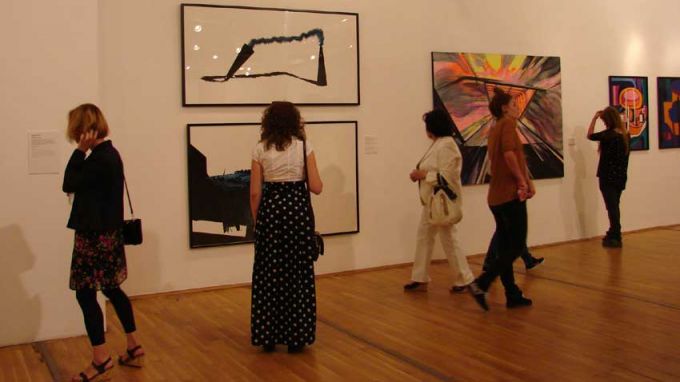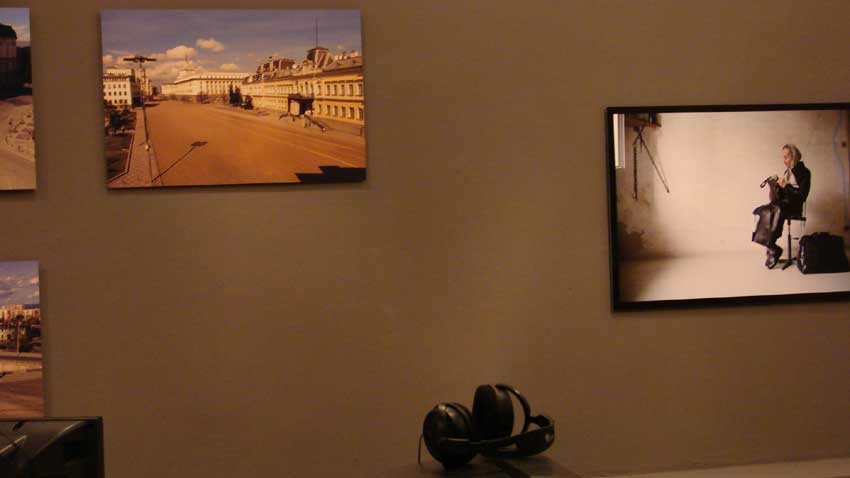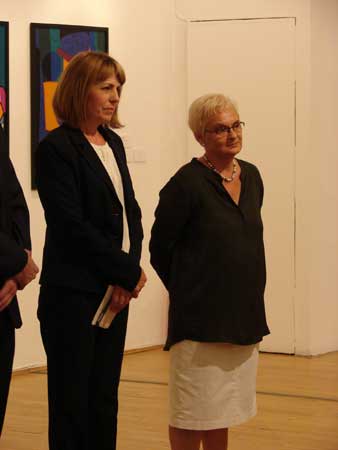
Four Bulgarian cities: Sofia (along with the Southwestern region), Plovdiv, Varna and Veliko Turnovo have been shortlisted at the prestigious contest for European capital of culture, 2019. An international selection panel has begun making a tour of Sofia’s major tourist landmarks. The panel members visited sites currently in the process of transformation: the crumbling monument called 1,300 years Bulgaria whose fate is yet to be decided, the old tram depot and the abandoned space in front of the central railway station which is designated to become the stage of different art projects. And more: the renovated Women’s Marketplace with its multicultural atmosphere and the huge graffiti drawings on the prefab blocks of flats in Hajdi Dimitar residential area, a project for the renovation of the courtyard areas between apartment blocks… The tour ended at the Sofia City Art Gallery. There, people from different spheres – culture, art, civic organizations and business – met to discuss these issues. Here now is Atanas Garov, deputy-chair of the Confederation of Employers and Industrialists in Bulgaria about the first public-private fund and how it helps finance innovative art:
“This is a pioneer model of financing culture in this country and we gladly gave it our support, as its sustainability is evident. Of course, it is important for its programme and the budget to be executed. We believe Sofia and the Southwestern region stand a good chance of becoming European capital of culture. The bid itself, especially if Bulgaria wins it, would be an enormous stimulus to business, to sectors such as restaurant and hotel keeping, tourism and the services. And they are all eager to see the country win. We shall do all we can to support this cause.”

Atanas Kambitov, Mayor of Blagoevgrad indicated that businessmen across the entire Southwestern region support the bid. “This is an example of how tradition, customs, culture, innovation, creative ideas can be applied to stimulate the economy and create jobs,” he says. On her part, Sofia Mayor Yordanka Fandukova adduces figures from a survey conducted by Noema agency in July:
 “Sofia’s bid is the most recognizable with 78 percent of the respondents in the national survey saying they know about it. This is 17 percent more than the support for the city that comes second; 76 percent say they have noticed a tangible positive change in the city’s cultural life over the past 12 months. There are more open-air events, more European artists coming here, buildings and city spaces are being transformed. What is even more encouraging is the fact that when we were taking part in the first phase of the competition, 67 percent of people in Sofia stated their support for Sofia’s bid for European capital of culture. And something that really matters - this support is first and foremost among the young, people aged under 34. And this is due to the consistent and independent efforts of the citizens and artists who demonstrated that “European capital of culture” is a citizens’ project, an undertaking of the young, a cause for all people living in the city and the region.”
“Sofia’s bid is the most recognizable with 78 percent of the respondents in the national survey saying they know about it. This is 17 percent more than the support for the city that comes second; 76 percent say they have noticed a tangible positive change in the city’s cultural life over the past 12 months. There are more open-air events, more European artists coming here, buildings and city spaces are being transformed. What is even more encouraging is the fact that when we were taking part in the first phase of the competition, 67 percent of people in Sofia stated their support for Sofia’s bid for European capital of culture. And something that really matters - this support is first and foremost among the young, people aged under 34. And this is due to the consistent and independent efforts of the citizens and artists who demonstrated that “European capital of culture” is a citizens’ project, an undertaking of the young, a cause for all people living in the city and the region.”
The Sofia City Art Gallery is without doubt one of the most active cultural institutions. Its initiatives throw bridges to different periods and to people working in different genres, to art phenomena taking place abroad.
“Many of our projects, major exhibitions and studies were in fact dedicated to Sofia’s nomination for capital of culture with one and the same objective – to present our art in the best way possible,” says Adelina Fileva, Director of the Sofia City Art Gallery. “The material presented at these expositions is always bilingual (in Bulgarian and in English). This means visitors from abroad are able to read and get acquainted with our art and our achievements. At the same time our major research exhibitions (accompanied by serious studies of the period, the artists and their works) had guides as well as embossed works to help the visually impaired. Some of our expositions were shown abroad. And our colleague Maria Vassileva made a presentation to the selection panel when they visited Bulgaria to help them in their choice of European capital of culture.”
English version: Milena Daynova
The fourth national Biennial of Illustrations opens today in the triangular tower of Serdica, part of the Regional Museum of History in Sofia. As during its previous editions, the biennial is not themed. “The aim is to enable the authors to..
“A story that is worthy of a movie” is what we often say when we hear about some incredible event or an interesting story. It is cinema that seems to help today's digitally dependent person, for whom the magical worlds of paper books..
After the success of the "We are the children of the river" festival in September, a civic foundation is once again collaborating with the Plovdiv City Centre Municipality. This time they have organised an exhibition of the same name, featuring..
The 51 st Sofia International Book Fair opens today at the National Palace of Culture in Sofia. The forum, which will be on until 15 December, is..

+359 2 9336 661
